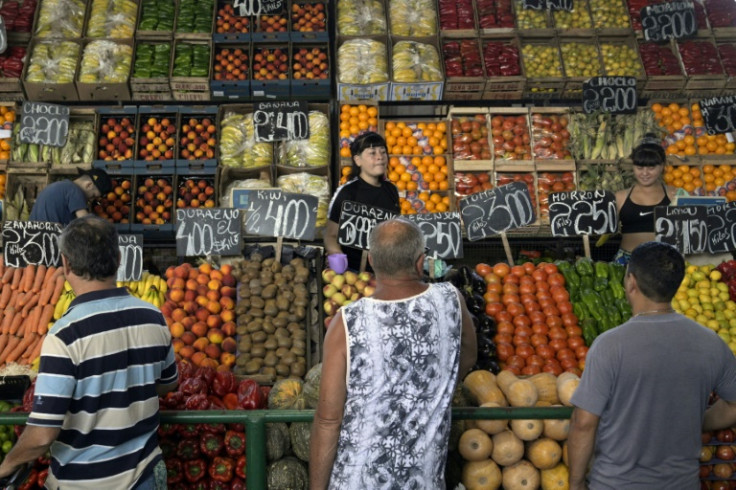Argentina Slashes Subsidies And Devalues Peso By 50% As Milei's Austerity Plan Takes Shape

The administration of newly-inaugurated Argentine President Javier Milei introduced its first set of austerity measures this week, as South America's second largest economy attempts to pull itself out of an ongoing financial crisis defined by persistent inflation and a scarcity of foreign currency.
The new government will reportedly cut public spending equal to 2.9% of GDP. Energy subsidy reductions will account for the largest share of spending cuts (0.5%), followed by social security and pensions (0.4%) and transport subsidies (0.2%).
Government spending in Argentina has been between 35% and 42% of GDP since 2018, and has been identified by some experts as a primary driver for the country's current economic crisis.
Youth unemployment is above 20% in Argentina, and wages have stagnated in recent years for state employees being paid at the deflated artificial exchange rate. The poverty rate is above 40% and year-over-year inflation is approaching 150%.
Led by newly-appointed finance minister Luis Caputo, Milei's administration on Tuesday also devalued the peso by 54% relative to the U.S. dollar, bringing the current official exchange rate to 800 pesos per dollar. This still falls short of the unofficial market rate, which has remained above 900 pesos per dollar since the beginning of October.
"He promised a very tough pill to swallow and he's delivering that pill," Jimena Blanco, chief analyst at consultancy Verisk Maplecroft, told Reuters.
Julie Kozack, Director of Communications at the International Monetary Fund (IMF), released a statement on Tuesday. "IMF staff welcome the measures announced earlier today by Argentina's new Economy Minister, Luis Caputo. These bold initial actions aim to significantly improve public finances in a manner that protects the most vulnerable in society and strengthen the foreign exchange regime. Their decisive implementation will help stabilize the economy and set the basis for more sustainable and private-sector led growth."
Argentina is the single largest debtor to the IMF, owing over $31 billion in outstanding loans as of the end of November. This represents 28% of the IMF's total current outstanding credit.
Milei Embraces China Out Of Necessity
In another measure taken this week to bolster Argentina's near-term fiscal stability, Milei sent a letter to Chinese President Xi Jinping on Tuesday requesting accelerated access to $5 billion from a currency swap agreement negotiated by the proceeding administration of Alberto Fernández.
On the campaign trail Milei was an outspoken critic of the Chinese government, as well as Argentina's growing economic and diplomatic ties with Beijing. "We will not make deals with communists," he said in an interview with Bloomberg in August.
The currency swap request is necessary because "there is precious little alternative to finance it," Nicolas Saldias, Senior Analyst for Latin America and the Caribbean at The Economist Intelligence Unit, said Tuesday on X/Twitter. Argentina has a $900 million payment to the IMF due at the end of December.
China is Argentina's largest trading partner. It's Argentina's top import destination and second-largest export destination thanks to extensive private and public links in critical sectors like agriculture (soy), mining (lithium) and major infrastructure projects.
Milei's economic team will undoubtedly need to come up with new solutions to Argentina's economic woes over the coming months, as the country is projected to post negative GDP growth for the second consecutive year in 2024.
© Copyright IBTimes 2024. All rights reserved.












